Leaker, Speaker, Soldier, Spy: The Charmed Life of David Petraeus
It seems a robust Rolodex with the right global roster, a marquee name and a cultivated geopolitical brand covers a multitude of sins. And that’s precisely the type of firepower that Petraeus brings to the table.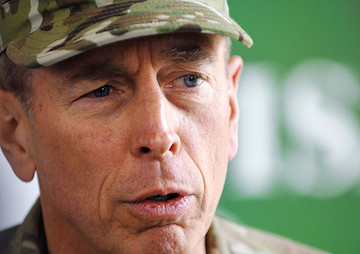 David Petraeus. (ResoluteSupportMedia / CC-BY-2.0)
1
2
3
4
David Petraeus. (ResoluteSupportMedia / CC-BY-2.0)
1
2
3
4

David Petraeus. (ResoluteSupportMedia / CC-BY-2.0)
I ran into David Petraeus the other night. Or rather, I ran after him.
It’s been more than a year since I first tried to connect with the retired four-star general and ex-CIA director — and no luck yet. On a recent evening, as the sky was turning from a crisp ice blue into a host of Easter-egg hues, I missed him again. Led from a curtained “backstage” area where he had retreated after a midtown Manhattan event, Petraeus moved briskly to a staff-only room, then into a tightly packed elevator, and momentarily out onto the street before being quickly ushered into a waiting late-model, black Mercedes S550.
And then he was gone, whisked into the warm New York night, companions in tow.
For the previous hour, Petraeus had been in conversation with Peter Bergen, a journalist, CNN analyst, and vice president at New America, the think tank sponsoring the event. Looking fit and well-rested in a smart dark-blue suit, the former four-star offered palatable, pat, and — judging from the approving murmurs of the audience — popular answers to a host of questions about national security issues ranging from the fight against the Islamic State to domestic gun control. While voicing support for the Second Amendment, for example, he spoke about implementing “common sense solutions to the availability of weapons,” specifically keeping guns out of the hands of “domestic abusers” and those on the no-fly list. Even as he expressed “great respect” for those who carried out acts of torture in the wake of 9/11, he denounced its use — except in the case of a “ticking time bomb.” In an era when victory hasn’t been a word much used in relation to the American military, he even predicted something close to it on the horizon. “I’ve said from the very beginning, even in the darkest days, the Islamic State would be defeated in Iraq,” he told the appreciative crowd.
I went to the event hoping to ask Petraeus a question or two, but Bergen never called on me during the Q & A portion of the evening. My attendance was not, however, a total loss.
Watching the retired general in action, I was reminded of the peculiarity of this peculiar era — an age of generals whose careers are made in winless wars; years in which such high-ranking, mission-unaccomplished officers rotate through revolving doors that lead not only to top posts with major weapons merchants, but also too-big-to-fail banks, top universities, cutting-edge tech companies, healthcare firms, and other corporate behemoths. Hardly a soul, it seems, cares that these generals and admirals have had leading roles in quagmire wars or even, in two prominent cases, saw their government service cease as a result of career-ending scandal. And Citizen David Petraeus is undoubtedly the epitome of this phenomenon.
Celebrated as the most cerebral of generals, the West Point grad and Princeton Ph.D. rose to stardom during the Iraq War — credited with pacifying the restive city of Mosul before becoming one of the architects of the new Iraqi Army. Petraeus would then return to the United States where he revamped and revived the Army’s failed counterinsurgency doctrine from the Vietnam War, before being tapped to lead “The Surge” of U.S. forces in Iraq — an effort to turn around the foundering conflict. Through it all, Petraeus waged one of the most deft self-promotion campaigns in recent memory, cultivating politicians, academics, and especially fawning journalists who reported on his running stamina, his penchant for push-ups, and even — I kid you not — how he woke a lieutenant from what was thought to be an irreversible coma by shouting the battle cry of his unit.
A series of biographers would lionize the general who, after achieving what to some looked like success in Iraq, went on to head U.S. Central Command, overseeing the conflicts in both Iraq and Afghanistan. When the military career of his subordinate General Stanley McChrystal imploded, Petraeus was sent once more unto the breach to spearhead an Afghan War surge and win another quagmire war.
Your support matters…Independent journalism is under threat and overshadowed by heavily funded mainstream media.
You can help level the playing field. Become a member.
Your tax-deductible contribution keeps us digging beneath the headlines to give you thought-provoking, investigative reporting and analysis that unearths what's really happening- without compromise.
Give today to support our courageous, independent journalists.

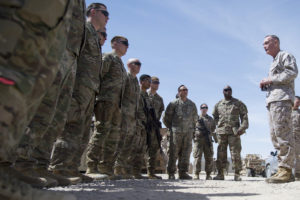

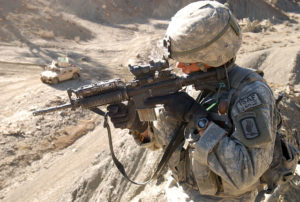
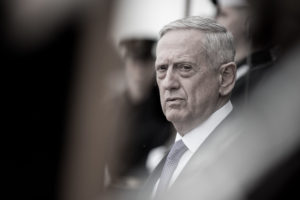
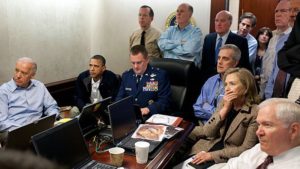
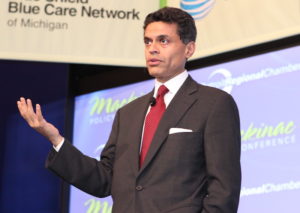


You need to be a supporter to comment.
There are currently no responses to this article.
Be the first to respond.